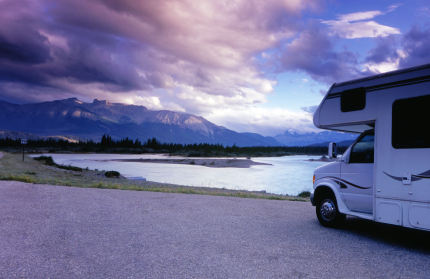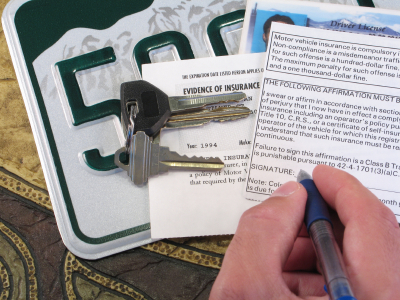Motorhome Insurance for Those Who Roam
Motorhomes are a unique mix-up of an auto and a home and you have the option of protecting your motorhome with your home and auto insurance or a specialty policy just for recreational vehicles.
Motorhomes are a great way to get out and see the country. You take all of your belongings with you and you get to still sleep in your own bed every night even though you are on the road.
Motorhomes do offer a challenge to insure though as you can insure them on your auto policy and let the little bit of homeowners “off-premise” coverage protect what is inside or you could purchase motorhome insurance in the form of a RV insurance policy.
Insuring the Motorhome on Auto Insurance
There are circumstances that you can simply put your motorhome on an auto insurance policy. It is quick and easy if you already have an active auto policy and it will provide you instant coverage. The only problem is that it also only offers the same coverage as an auto policy and a motorhome is a little more complex than that.
With a motorhome you keep valuables inside and they are not covered by your auto insurance policy unless they are attached to the motorhome itself. Your homeowner’s policy could step in and cover the items inside the motorhome in the event that they are destroyed or damaged, but it is only done so at 10% of what personal belongings coverage you have on your homeowner’s policy as the items are considered to be “off-premise”.
You also have liability issues with motorhomes that are outside the coverage of the basic auto insurance policy.
Specialty RV Insurance for your Motorhome
The best avenue to take in insuring your motorhome is to purchase a specialty policy for it, also known as RV insurance. RV insurance offers coverage beyond the auto policy and also the homeowner’s policy for the motorhome and what is kept inside of it. At the same time it also offers additional insurance for issues that may arise in the use of the motorhome such as:
- Liability coverage for injuries and damages to visiting parties at campsites
- Replacement of the items kept in the RV
- Higher limits for towing coverage
- Living expenses if you are living in your RV and it is a total loss due to damages
- Gap coverage
- Reimbursement for hotel stays and transportation if your RV is incapacitated
These are just some of the additional coverages that may be available on a RV policy for your motorhome. The actual coverages depend on the insurance company that you purchase the policy from.
Protecting What’s Inside your Motorhome
The valuables that you keep inside your motorhome should be treated just the same as the valuables that you keep inside your home. You need to keep high priced items tucked away out of the sight of would be thieves and you have to take extra care in making sure that breakable items don’t shift around and break while you are in transit.
Another good practice is to inventory everything that you keep inside your motorhome. You can use a video camera to record everything or you can simply write it all down. Don’t forget to include the make, model and serial number of the items and if you are adding higher priced items, keep all the receipts. You are completing this inventory in the case that your motorhome is destroyed or stolen so that you have a record of everything to provide to your insurance company for compensation.





